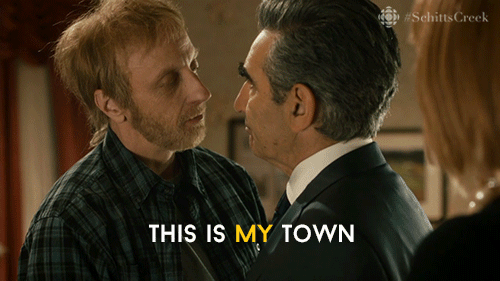“You just need to trust me. I’m your boss!”
Um….ok.

I was a brand new team member with a boss who had never led anyone before. I don’t remember exactly what precipitated the statement above. Perhaps I had exasperated him. Nevertheless, claiming his authority over me simply because of his position was definitely the wrong way to engage me.
Authority is Earned
Manager’s need to have authority to manage well, but in today’s workplace, bestowing a title on a manager does not give them authority. Sure, they can “yank the chains” of their team members and get some modest results, but threatening someone to do work is a poor way of developing a high performing and vibrant culture. Manager’s need to earn authority from their teams. But how do they do that?
Early in my leadership journey, I was encouraged to read “Credibility” by Barry Posner and James Kouzes. I LOVED the way these prominent researchers talked about leadership. Through their research, they uncovered the answer to one of the most important questions facing us wherever we go:
Why do we follow people?
According to Posner and Kouzes, we follow people because they’re:
Honest
Honesty is the bedrock of trust. Without it, your team won’t operate anywhere near its capacity, because they have no foundation for believing your have their best in mind. If your team sees you saying one thing and doing another, or worse, actually lying, what’s to keep them from expecting you to do the same to them? A friend of mine once said that being honest helps you sleep at night, because you’re never worried about being “found out”. I couldn’t agree more!
Competent
No one is competent in every area of their job, and people will have some grace for you in areas where you’re learning. (Key word: learning!) But your team should see that you have general competence in your role as a leader. They should see you have areas of expertise, and that you someone who accomplishes a great deal. At the same time, part of being competent is knowing what you don’t know, and humility in your competence will go a long way to gaining trust with your team.
Inspirational

Chances are you’ve had a leader that looks like they’d rather be licking stamps than leading the team. We don’t follow people like that. We want to see energy, passion, enthusiasm and optimism. This can look very different, of course. Not everyone needs to be “rah rah”, and in fact, in some circumstances that can be the wrong direction altogether. But letting people see you have energy for the role, the problems you’re solving, their development and the overall goal is incredibly important to having people follow you!
Forward looking
If you want people to follow you have to be going somewhere, right? Having a vision that you can communicate with clearly defined goals, enthusiasm and a solid “why” will make you followable. Noted speaker and author Simon Sinek calls this vision “Just Cause“, indicating a vision so compelling that people are willing to sacrifice to contribute to it.
Earning authority
So we can see why people follow leaders, but there are many people who can check the boxes above without carrying authority. Leaders in the 21st century must not only exhibit the qualities outlined by Posner and Kouzes, that must also demonstrate other human characteristics – like compassion, humility, understanding and flexibility.
Where “old-school” leadership fails
It’s well documented that millennials already make up a large percentage of the workforce. As that number continued to grow it’s important to understand how this large demographic prefers to be led.
As a baby boomer, I was expected to do my job, obey my boss, be loyal to the company and collect my gold watch at the end of my career. If the job description entailed countless hours of overtime that sacrificed time with my family, so be it. Then ultimate end would justify the means.
Millennials don’t buy it.
In a 2013 study researchers defined directive leadership (what I refer to as “old school”) as “associated with the leader’s positional power and is characterized by behaviors aimed at actively structuring subordinate’s work through providing clear directions and expectations regarding compliance with instructions.
In other words, I say it and you do it.

Empowering leadership, on the other hand, is defined as “sharing power with subordinates and raising their level of autonomy and responsibility, and manifests through specific behaviors such as encouraging subordinates to express opinions and ideas, promoting collaborative decision making, and supporting information sharing and teamwork.“
The study concluded that “teams led by a directive leader initially outperform those led by an empowering leader. However, despite lower early performance, teams led by an empowering leader experience higher performance improvement over time because of higher levels of team-learning, coordination, empowerment and mental model development.”
As Randy Grieser mentioned in his blog post entitled “The Problem with “Old School” Managers“: “In organizations and teams where [the directive style] is present, employees quickly fall in line or head for the exit. For those who stay, any ounce of creativity and engagement is replaced with silent acceptance. The overarching belief of employees is that it’s best to keep one’s head down and not be noticed.”
My personal failure
Years ago I moved across country to be in closer proximity to a team of about 65 folks I was already leading. When I first arrived, I had a pre-conceived notion that some of our lack of productivity was due to a lack of professionalism on the team. I figured the best way to deal with it was to create processes and policies that would whip the team into shape. Instead of asking questions and listening to my team, I grabbed the reigns and pulled hard.
Big mistake.

Did people comply? Generally. Did it improve the atmosphere on my team? Absolutely not. It took only a few weeks for me to see the error of my ways, and when I truly engaged my team in the process of solving the problem, not only did they breathe a huge sigh of relief, but they became much more productive, (and happier!), almost immediately!
So the directive style may get short term results, but in the long term you’ll create an environment where people won’t want to work.
How to earn authority with your team
Aside from the things we have already mentioned – displaying honesty, competence, inspiration, vision and empowerment – here are a few other things to consider:
- Meet with your teammates regularly in one-on-one meetings, ask them questions and genuinely listen to understand.
- Talk about things that matter, not just the status-y things. This can be obstacles they are facing, professional development opportunities they’d like to pursue, or even personal issues that they’re concerned about. You’re their boss, and by engaging with them on their playing field, you will begin engendering the kind of trust that will allow you to have the authority you need.
- When dealing with constructive feedback, do your best to understand the context from their perspective. “I noticed [the issue]. Can you help me understand what caused it?” “Is there anything we can do to avoid the issue next time?”, and “How can I help?” are great questions to get the ball rolling.
- Help them. I know, it seems obvious, but where you have expertise, offer to help. And when you do, remember to empower them. Don’t just do the work yourself, but give them the tools they need to learn. If you can share your expertise, great! If you’re not the right person, help them find someone who is.
- Finally, walk the talk. Do what you say you’ll do, and act fairly toward everyone on the team. Leaders must be credible! “Leadership is personal. It’s not about the corporation, the community, or the country. It’s about you. If people don’t believe in the messenger, they won’t believe the message. If people don’t believe in you, they won’t believe in what you say.” (Source: Credibility)
Remember, being “in charge” doesn’t actually grant you authority. Being a great manager will make your team excited to work with you, and from that you’ll have all the authority you need!
Want to be a better manager with a happier, healthier and more effective team?
Sign up for a free coaching consultation with Uptick Co-founder Chris Zaugg to improve your team’s effectiveness by connecting relationally.


